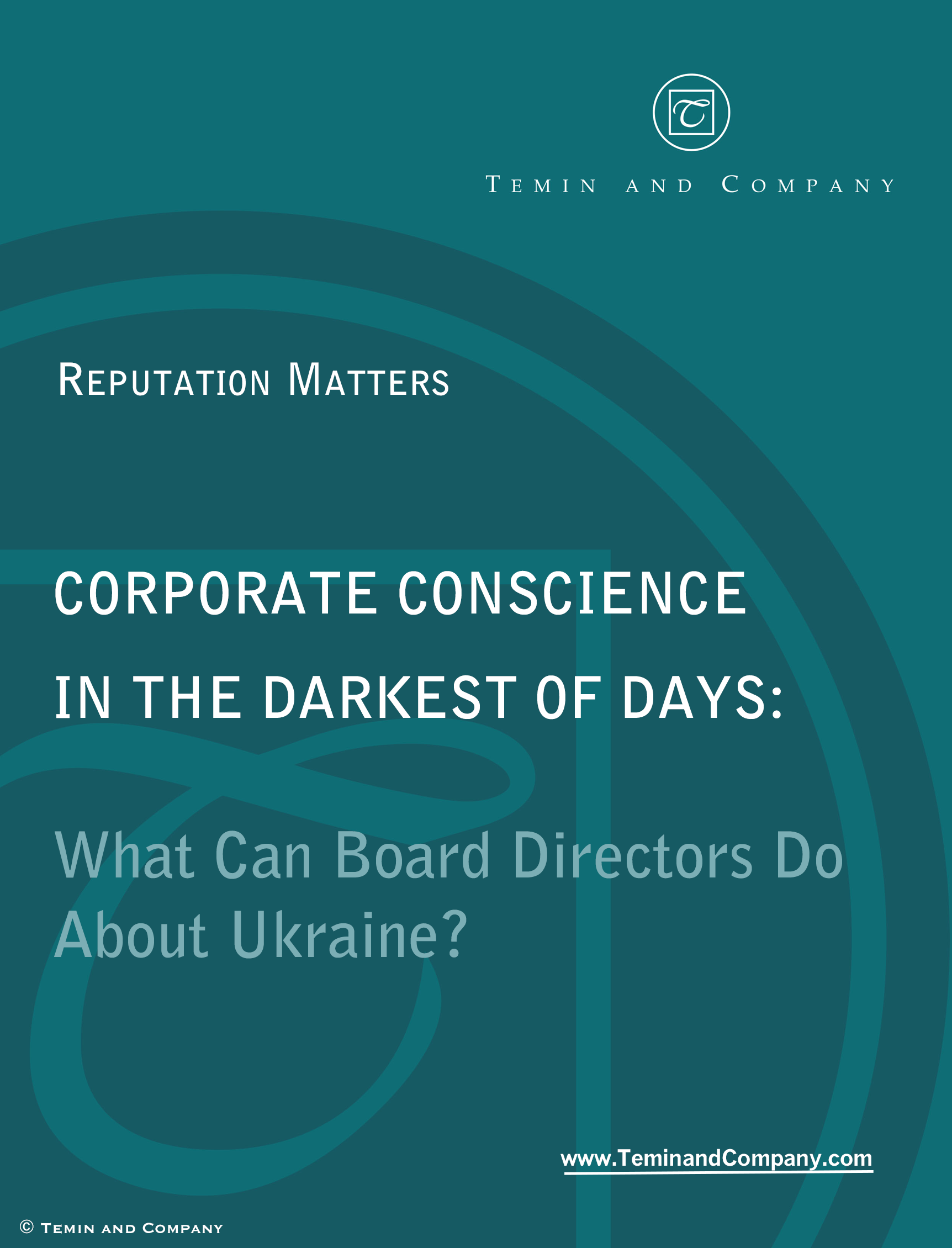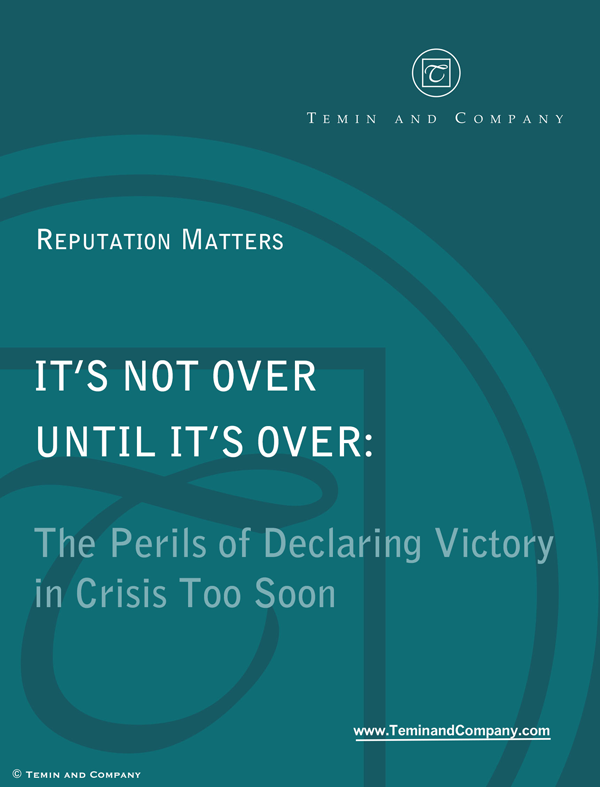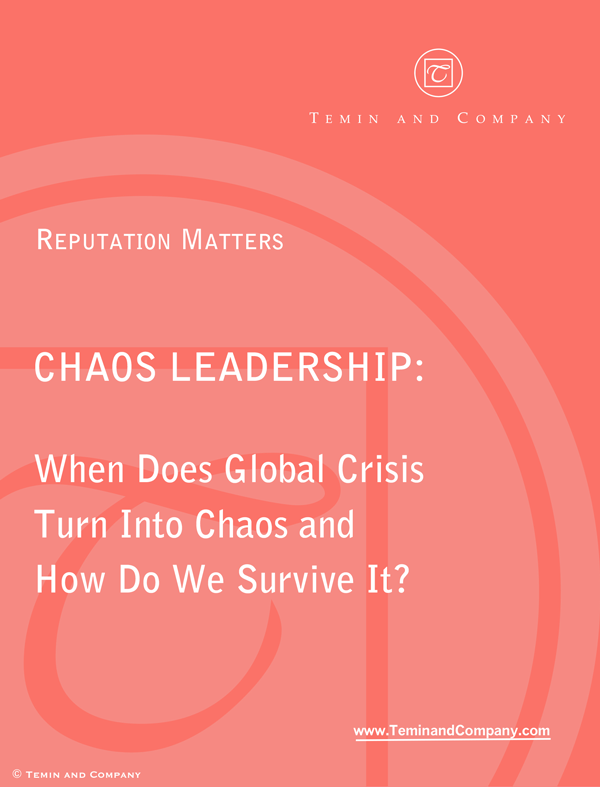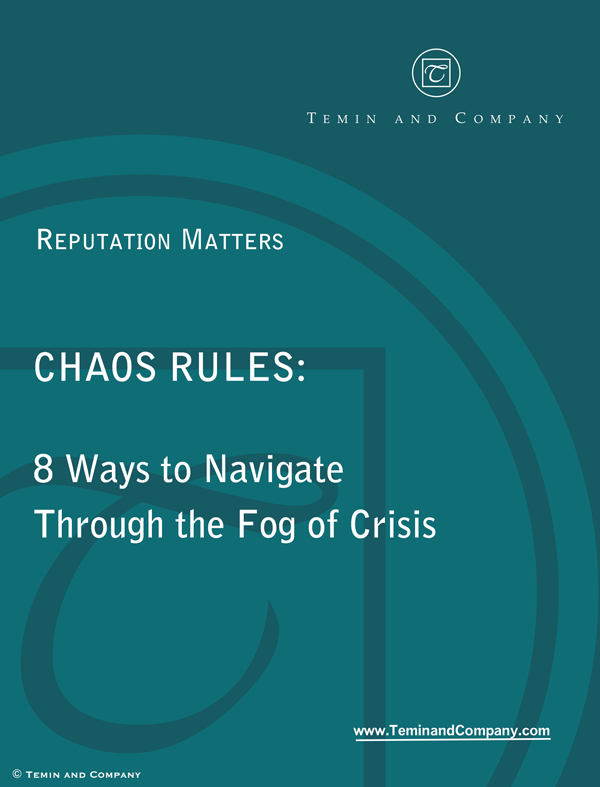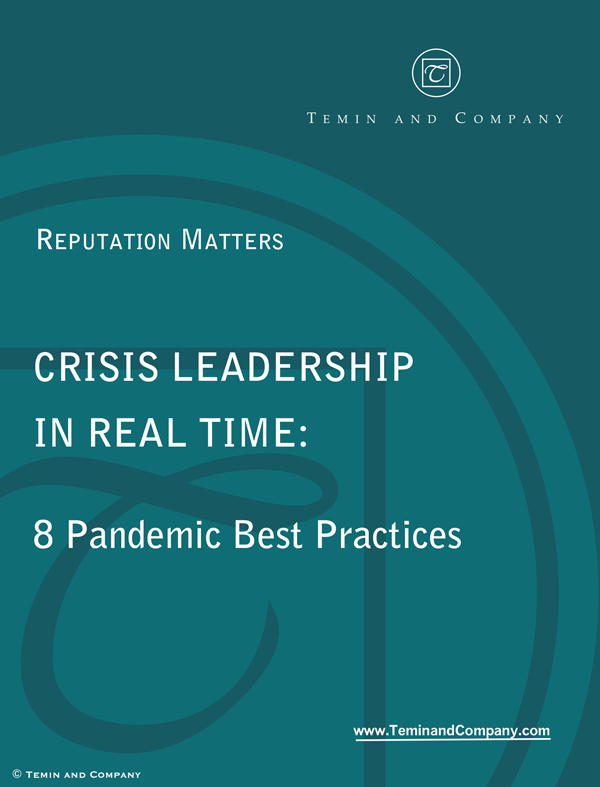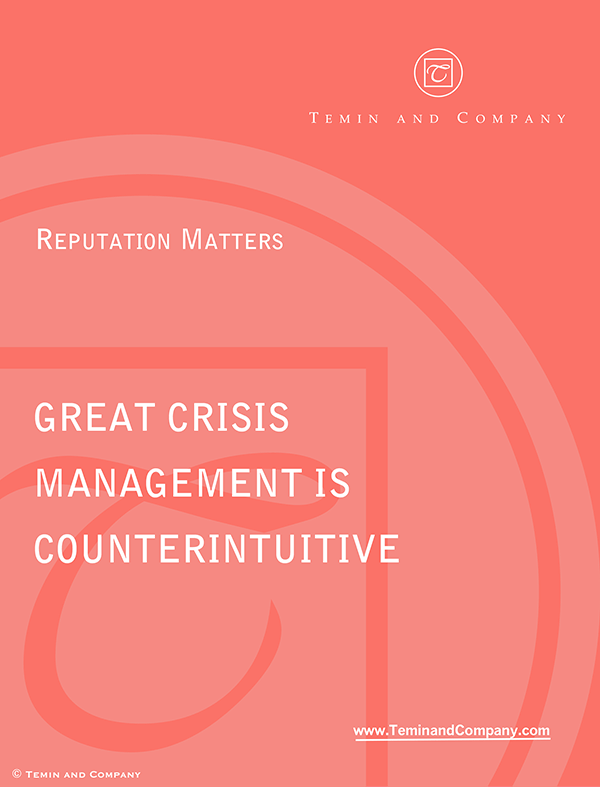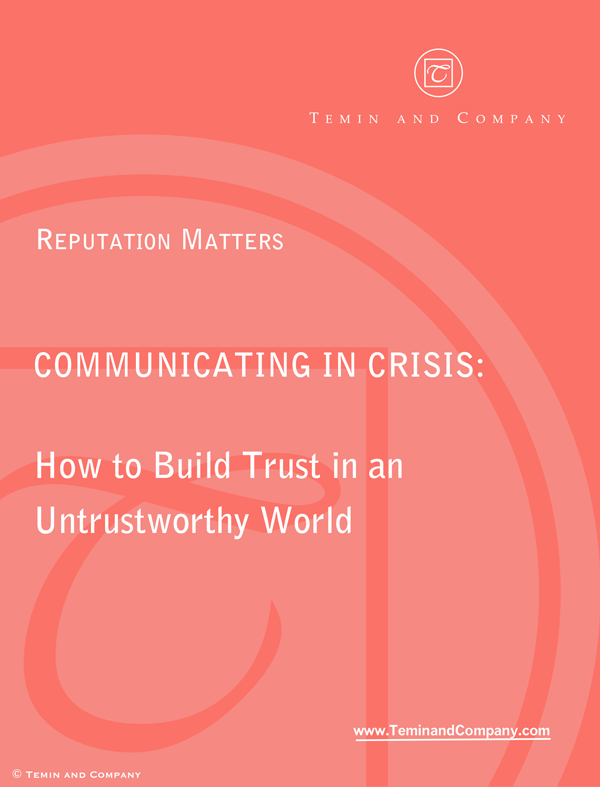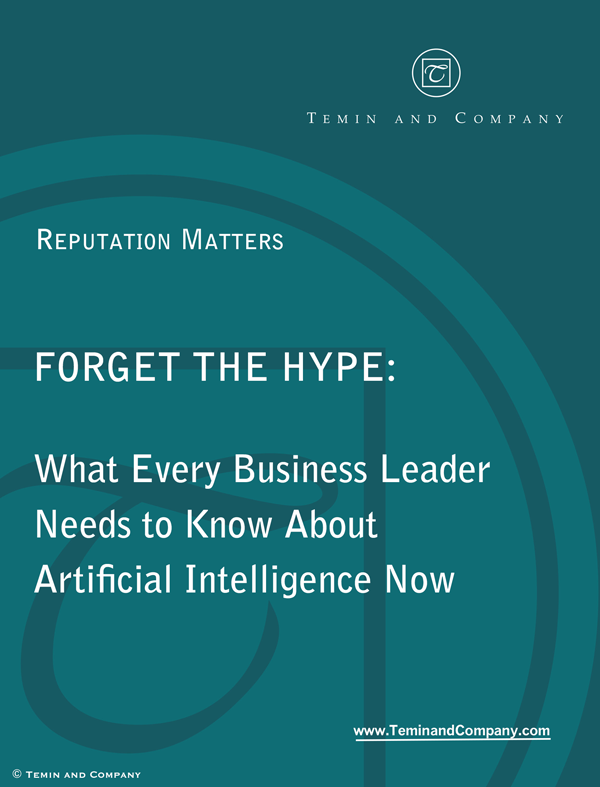Thought Leadership–Forbes “Reputation Matters”
White Papers»
"Reputation Matters" White Papers seek to offer deeper insight on a wide range of topics we help clients address.
When Masters Of The Universe Fall – How Facebook Committed The 7 Deadly Sins Of Crisis Management
Leadership, “Reputation Matters,” Forbes, November 16, 2018
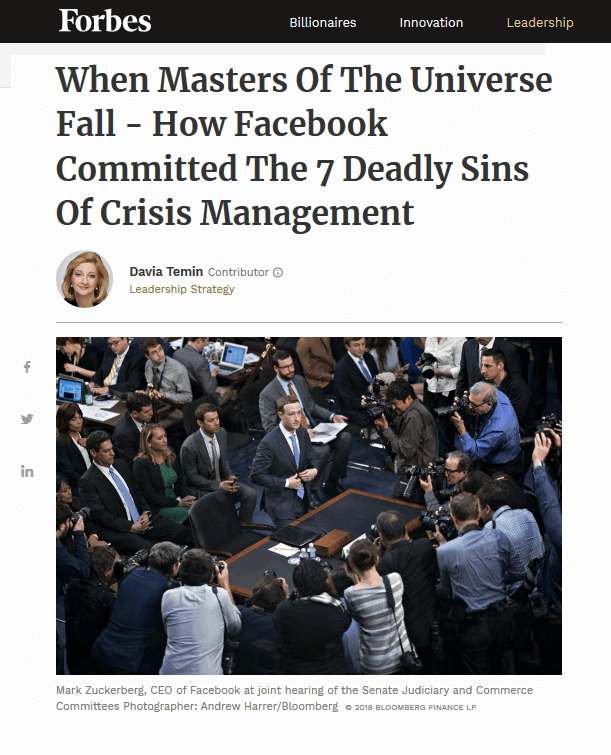
Wall Street’s Investment Bankers used to be called the Masters of the Universe, but that seems so last millennium now. As the mantle of unbridled self-confidence and ego has moved westward, many new “Tech Masters” have surpassed their predecessors in over-confidence, over-estimation of how powerful they are, and in how badly they can get things wrong. Crisis, of course, ensues.
Facebook showcases the whole issue. Every industry and every generation feels invulnerable as long as everything is going their way. And the behemoth that Mark Zuckerberg built has led the pack. But when a fall from grace comes, as it has come for Facebook (through their own mistakes says yesterday’s blockbuster New York Times article Delay, Deny, Deflect: How Facebook Leaders Leaned Out in Crisis), it shakes the world. At least the cyber world, and all who live or visit there.
Crisis demands the ability to see clearly, the humility to admit mistakes readily, and the courage to do whatever it takes to fix those mistakes immediately. If you can’t do this, you are committing one or more of the 7 deadly cardinal sins of crisis management. Facebook, it turns out, has committed all 7. […read more]
How Should Men Accused of #MeToo Offenses Respond?
Leadership, “Reputation Matters,” Forbes, September 14, 2018
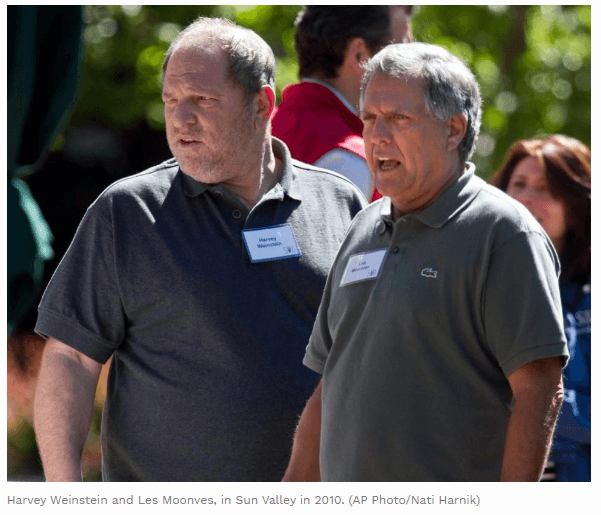
What would have happened last year if—upon hearing of Harvey Weinstein’s sexual harassment debacle and forced exit from the company he created—CBS CEO Les Moonves had decided to take a radically different path?
What if—knowing that a police report was being filed against him, and that news of it and other abuses he had never admitted to was inevitably going to come out in the current environment—he had chosen to come clean instead of continuing to stonewall? In fact, what would have happened if he had come clean long before?
While this is not the crisis advice one would necessarily give, as the #MeToo movement marches on we need to find some new strategies not only for curtailing abusive behavior, confronting it and making reparation but also for potentially modeling how one might recover honorably. […read more]
Les Moonves Makes No. 700 On The #MeToo Index (And Jeff Fager Is 701)
Leadership, “Reputation Matters,” Forbes, September 12, 2018
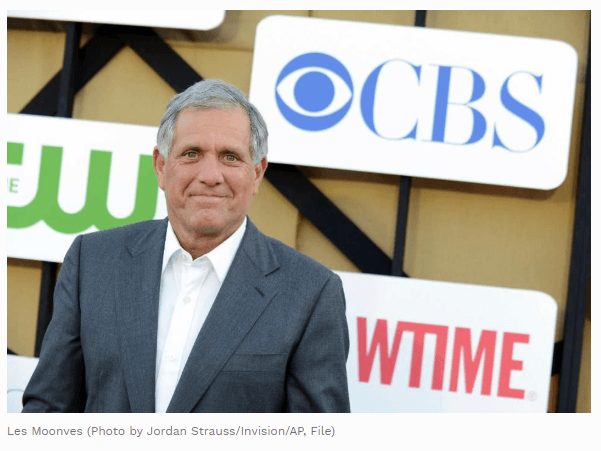
Just in case any of us thought that the #MeToo phenomenon was a flash in the pan, the ouster of CBS CEO Les Moonves and 60 Minutes Executive Producer Jeff Faber, the latest high-profile public figures to be felled as the movement continues, has proven otherwise. As our tally of public figures accused of sexual harassment, or other #MeToo violations, continues to climb, the mighty and the mousy, the sacred and the profane are being called to account. The numbers tell us that the movement has both momentum and staying power.
Les Moonves makes 700, and Jeff Fager 701. […read more]
How The Reputation Risk Of #MeToo Is Forcing Businesses To Reevaluate Their Corporate Culture
Leadership, “Reputation Matters,” Forbes, May 14, 2018
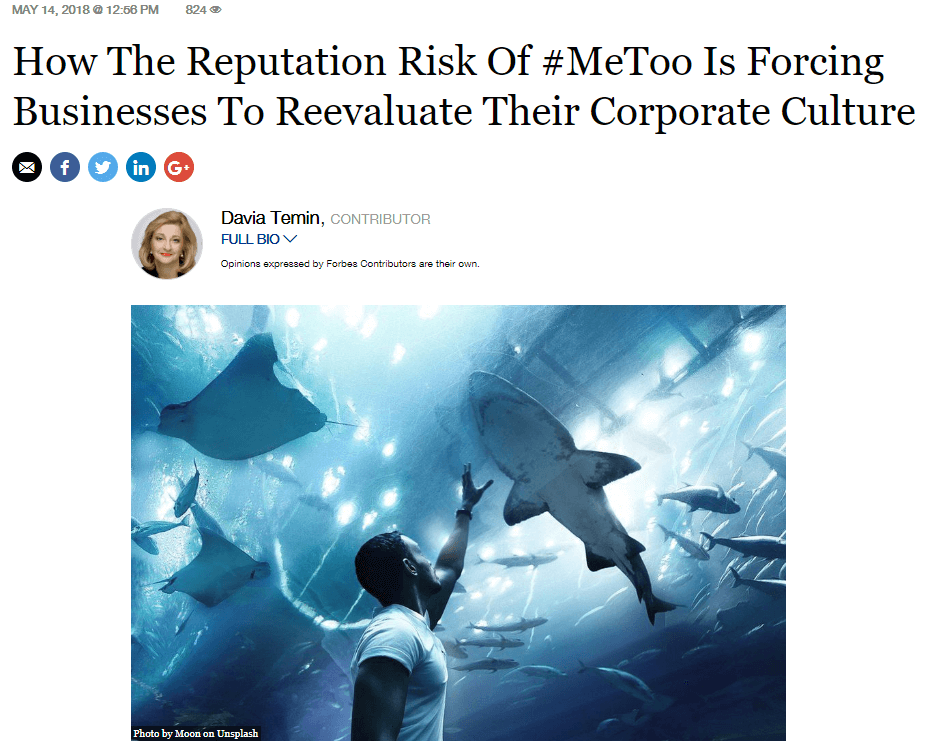
Real #MeToo incidents in the workplace aren’t happening in a vacuum. Whether they are the most egregious examples of sexual harassment and abuse, or more subtle acts of unconscious bias, they all happen within a culture that somehow sanctions them.
New Examination of Corporate Culture
That is why the reputational risks of #MeToo (we calculate that since the first Bill Cosby trial, 298 high-profile executives have been let go in the US because of sexual improprieties), as well as escalating global calls for gender equity, are sparking a whole new examination of corporate and organizational culture. What elements of culture enable abuse, or create a toxic work environment, and what elements preclude them? […read more]
The ‘Force Of Nature’ Behind Getting Women On Boards
Leadership, “Reputation Matters,” Forbes, May 10, 2018
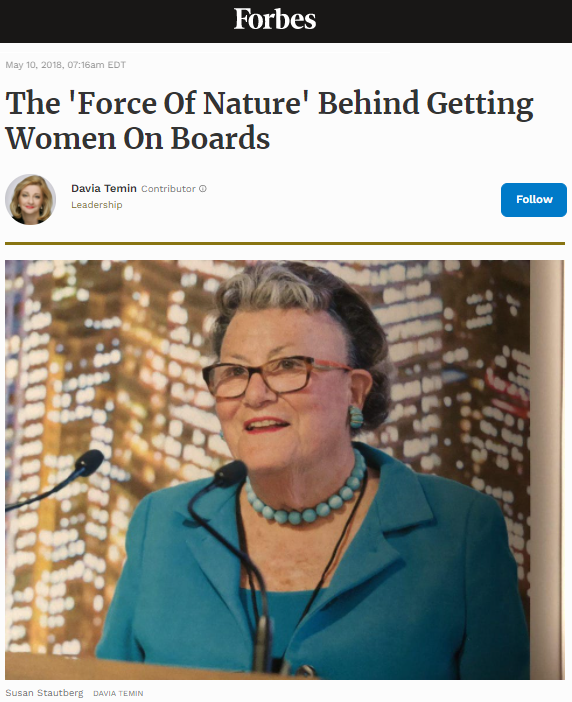
Impact — outsized, world-changing impact — that is the legacy of Susan Stautberg, the co-founder, Chair Emeritus and retiring CEO of WomenCorporateDirectors, honored last evening at WCD’s 2018 Visionary Awards Ceremony.
The Most Powerful Women in the World
WCD was the first organization for women sitting on corporate boards, arguably the most powerful group of women in the world. A combination of best-practices institute and lobbying organization urging boards to raise their percentage of women directors, this community of trust has become a unique refuge for a global group of women who are changing the way the world does business.
And this includes how boards are becoming more activist, and less tolerant of #metoo behavior, or any kinds of harassment within their organizations. It appears from anecdotal evidence at least that it is the women board directors who are sparking changed attitudes on their boards, and within their companies. […read more]
What Mark Zuckerberg Should Have Said
Leadership, “Reputation Matters,” Forbes, March 23, 2018
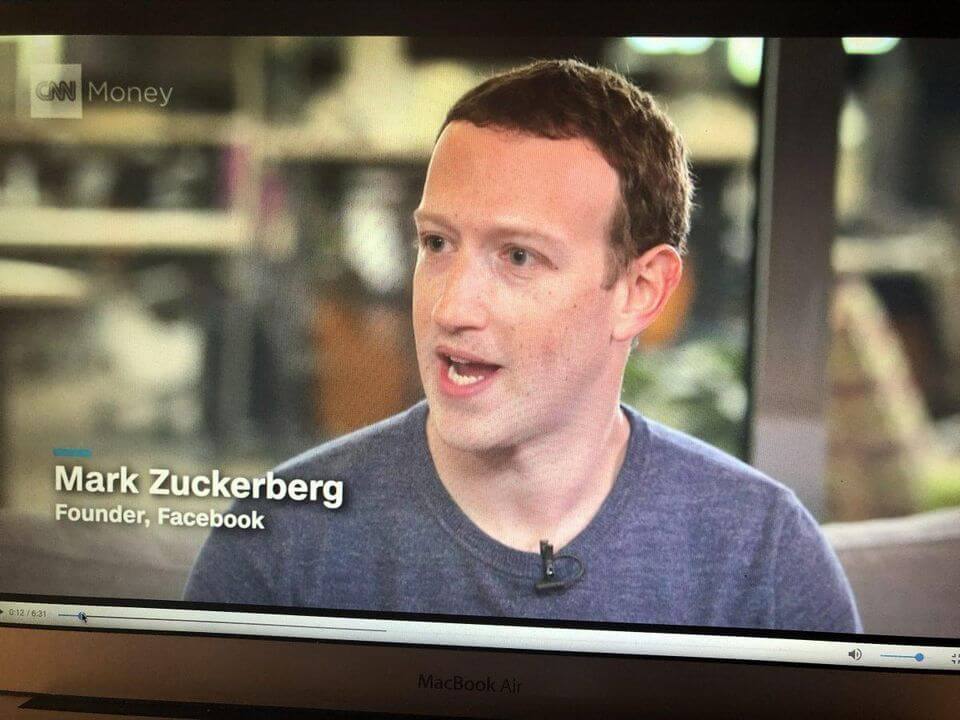
You know that Marianne Williamson quote: “Our deepest fear is not that we are inadequate. Our deepest fear is that we are powerful beyond measure?” Well so it is with Facebook. It turns out Facebook is far, far more powerful than any of us — even they, even Mark Zuckerberg — ever thought.
And with such awesome power comes awesome responsibility.
This week, Facebook shirked that responsibility through its terribly late and insufficient response to the Cambridge Analytica data hijacking scandal.
As a crisis advisor and coach who has crafted hundreds of what I hope are truly on-point, effective, and emotionally resonant crisis responses, here’s what I wish Mark Zuckerberg had done to give the world a response worthy of a Facebook’s vast global power and influence. […read more]
A 15-Point Plan For Boards And CEOs To Eradicate Sexual Harassment In Their Organizations
Leadership, “Reputation Matters,” Forbes, January 17, 2018
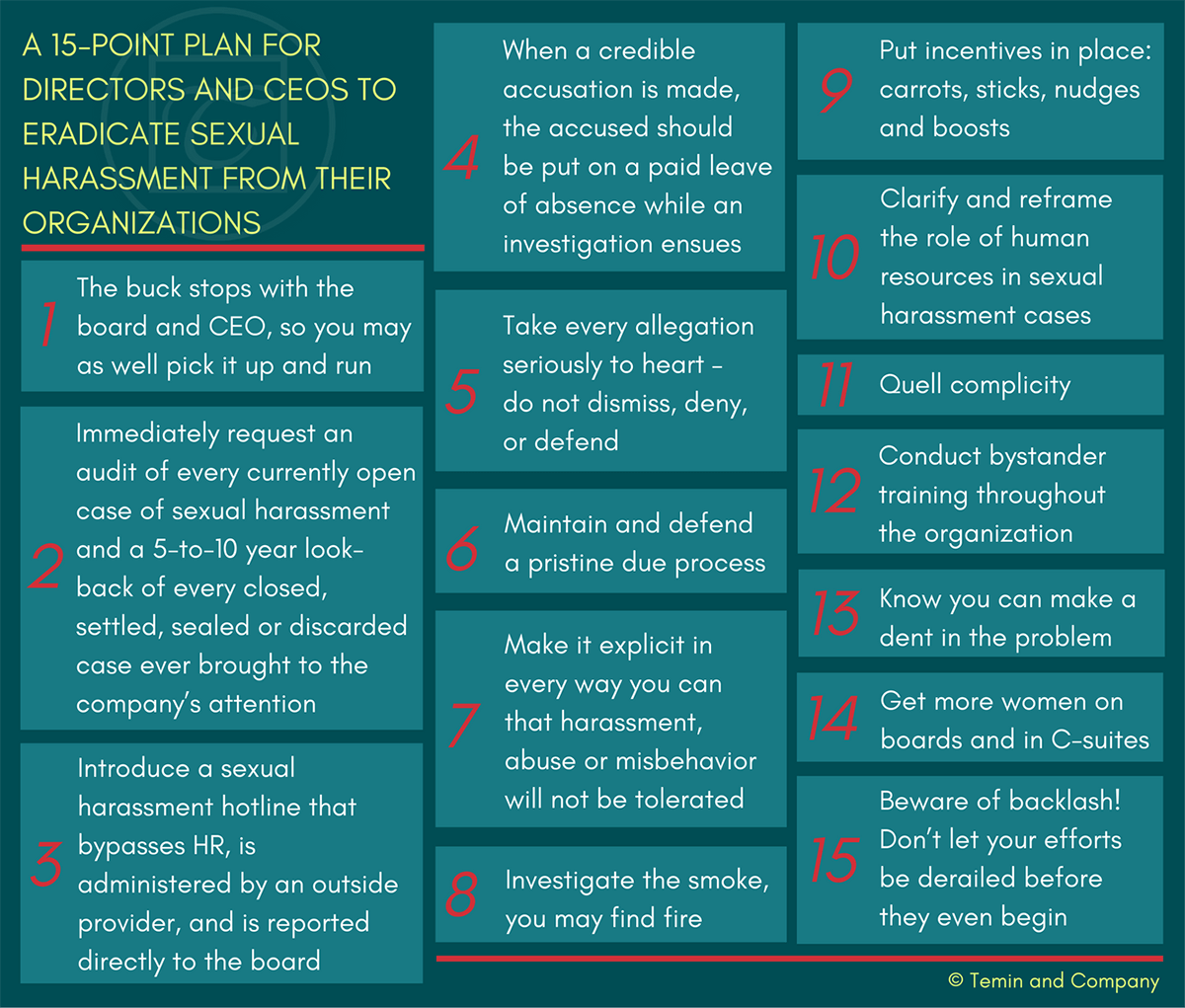
As organizations wait for the next wave in the tsunami of sexual abuse charges that is rocking American business, board directors and C-suite executives are fixated not only on understanding their risk exposure, but on what they can do to get ahead of the issue.
The only solution – and the right solution of course – is for leaders of all stripes to seriously take up the challenge of quashing sexual harassment in their workplaces for good.
Davia Temin’s “15-Point Plan To Eradicate Sexual Harassment In Your Organization” is an actionable, and easy-to-execute game plan for serious boards and executives. […read more]
Poisoned Apple Antidote: 11 Ways For Apple To Recover Trust After Its Battery Slowdown Crisis
Leadership, “Reputation Matters,” Forbes, December 31, 2017
The past several weeks have seen a string of mounting customer allegations against Apple, accusing the company of planning the obsolescence of its older 6 series iPhones through its last updates that limited those phones’ battery power and slowed them down significantly.
After radio silence, on Thursday December 28th, Apple finally posted a plausible explanation of why the last update indeed does hobble performance, and an apology, clearly trying to contain the reputational damage it has sustained.
While that explanation is a perfectly adequate one – it is too little, too late. […read more]
Getting Intelligent About Artificial Intelligence: 6 Ways Executives Can Start
Davia Temin, Bruce Molloy, Jayanth Kolla, Leadership, “Reputation Matters,” Forbes, December 8, 2017

This past June, Fortune Magazine asked all the CEOs of the Fortune 500 what they believed the biggest challenge facing their companies was. Their biggest concern for 2017: “The rapid pace of technological change” said 73% of those polled, up from 64% in 2016. Cyber security came in only a far second, at 61%, even after all the mega hacks of the past year.
So, what does “technological change” entail? For almost all Fortune 500 CEOs, it means, in part, artificial intelligence. And, as we wrote in our piece yesterday on Forbes.com, “Forget The Hype: What Every Business Leader Needs To Know About Artificial Intelligence Now,” AI is on the lips of almost every global CEO and Board of Directors.
But apart from the Big 8 technology companies – Google, Facebook, Microsoft, Amazon, IBM, Baidu, Tencent, and Alibaba – business leaders, especially of earlier generations, may feel they don’t know enough about AI to make informed decisions.
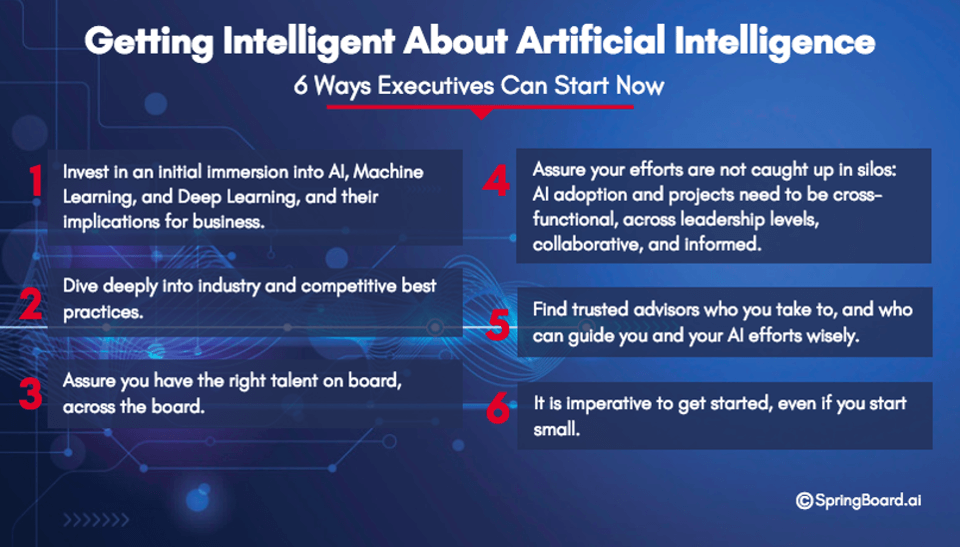
We made a series of 6 suggestions of how board members and C-suite executives can begin to understand this brave new world of AI, Machine Learning, and Deep Learning. And, after being asked by a number of people to break that list out for them, we include it, slightly modified, here. […read more]
Forget The Hype: What Every Business Leader Needs To Know About Artificial Intelligence Now
Davia Temin, Bruce Molloy, Jayanth Kolla, Leadership, “Reputation Matters,” Forbes, December 6, 2017

Artificial Intelligence – it’s on the lips of the leaders, and on the 2018 agendas of the board meetings, of almost every global company today. Directors and operating executives alike know, or think they know, that this “new electricity” is going to be the next transformative force of our world. To ignore it now could be fatal to their long-term competitive position, not to mention survival.
AI-powered companies that know what they are doing — primarily born in the Internet and mobile eras — have not only gained tremendous advantage in improved efficiency and increased profitability, they have literally changed the competitive landscape of successive industries. And they are continuing to do so, as they venture into new fields, challenging a whole new set of incumbents that are not AI “natives.” (Witness Google’s Launchpad Studio’s focus on healthcare AI startups, and Alphabet’s Waymo autonomous cars, to name only two.) […read more]
White Papers»
"Reputation Matters" White Papers seek to offer deeper insight on a wide range of topics we help clients address.




